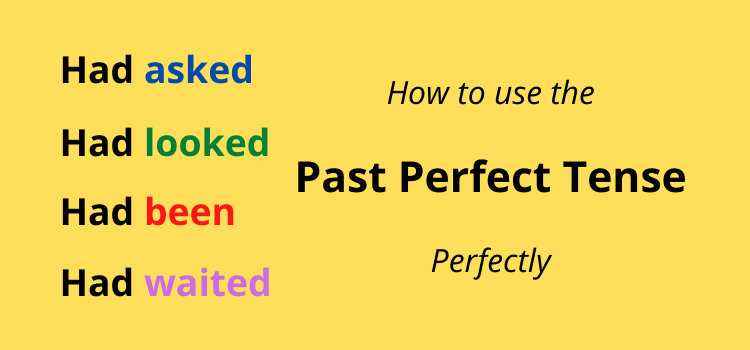
Correct verb agreement with group nouns, or collective nouns, is usually quite easy because, generally, they are grammatically singular.
For a singular collective noun, it needs a singular verb to agree with the noun. For example, The team is celebrating its World Cup victory.
But sometimes, you can use a plural collective noun that needs a plural verb. The team members are celebrating their World Cup win with their families.
As these two quick examples show, depending on the context of a sentence, different possibilities of use can arise.
Checking your verb agreement with group nouns
In general, when you refer to an entity, even though it consists of individuals or parts, it is singular.
Think here of companies, teams, or groups.
Apple is releasing a new iPhone.
The government is considering a change in policy.
The jury is considering its verdict.
For simple sentences like these, it’s no issue.
But for sentences with more information, clauses, or phrases, the context can sometimes raise grammatical issues regarding verb agreement.
The basic rule of thumb to follow is that the verb in a sentence needs to agree with the subject in terms of number.
But agreement can also extend to singular and plural pronouns like they and it.
You can usually resolve any problems by using the following seven guidelines to help you.
1. Use a singular verb with a singular sense
When the subject of a sentence is a collective or group noun like band, class, family, panel, committee, or crowd, the verb is always singular.
Companies are also in the same group.
So, Apple, Disney, and Toyota are singular entities.
Examples:
My family lives in the US, but I live in the UK.
The crowd is waiting for the teams to take the field.
Netflix has around 230 million paid subscribers worldwide.
2. Use a plural verb with a plural sense
When you refer to a collective noun as a group of individuals, you use a plural verb.
It’s an easy change to make, by simply adding a plural noun.
The plural reference is most often added after the group noun.
Examples:
The board members are expected to vote today.
The government ministers are arguing in small groups instead of coming to a decision.
3. Considering the context
Context is key to deciding whether a collective noun is singular or plural.
Take a rock band, for instance.
Depending on the situation, it can be seen as a united body or as separate members acting as individuals.
Examples:
Singular sense. The band has finished its sound check.
Plural sense. The band are in disagreement about their playlist.
You can see that the use of the plural pronoun, their, makes the sentence plural.
4. Intervening or unclear references
Sometimes the subject of a sentence is not clear.
Here are two simple examples.
The group of students is studying for exams. (Singular agreement, with the group as the main subject.)
A group of students are studying for exams. (Plural agreement, with students as the main subject.)
5. Use of number words
When you use terms like an amount of, a number of, or a percentage of, it is a singular reference.
It’s because they start with the indefinite article, which is always singular.
But it can seem odd when you use it in a sentence.
Example:
A huge number of people is expected at the music festival.
While the sentence is grammatically correct, it feels a little irritating to read.
In cases like this, it’s often better to rewrite the sentence.
Huge numbers of people are expected at the music festival.
6. When collective nouns are adjectives
Collective adjectives act like plural nouns.
It means that they have to take the plural forms of verbs.
Common examples include the young, the rich, and the needy.
We also use collective adjectives for nationalities, such as the French and the Spanish.
Examples:
The young are concerned about the future.
The French are famous for their cooking prowess.
7. When the context is inclusive or exclusive
The way you use a collective noun can affect the agreement.
Depending on the emphasis—on the group as a whole or on its individual members—the verb you decide to use might be singular or plural.
Example:
Inclusive: The council is divided in its opinion. (Singular agreement because it is focusing on the collective opinion.)
Exclusive: The council are having their own individual discussions with members of the public gallery. (Plural agreement because it focuses on separate actions within the group.)
Exceptions to the rules
Grammar rules are never black and white, and in this case, there are many gray areas.
In particular, depending on what form of English you use.
Nigel Caplan, an Associate Professor at the University of Delaware, gives some good examples of common variations.
His team is trying to get on a winning track. (US)
His team are playing the best football this term. (UK)
I’m very pleased with the way the team is working. (Australia)
The team is feeling great. (Canada)
The Irish rugby team are tough. (Ireland)
“In general, British English and some varieties that follow British conventions more closely tend to prefer plural verbs after singular collective nouns, which denote a group of people and are therefore logically plural in meaning.
However, in American, Canadian, and most other varieties, the singular verb agrees with the singular noun.
This, of course, is not a rule but a pattern with many exceptions and possibly some further variation based on region, context, and even individual preferences.”
Summary
Applying good grammar to your writing is often more about consistency than strict rules.
For verb agreement with group nouns, there are different possibilities that are all quite correct.
However, mixing your use can be distracting for your readers.
If you write in British English and choose to use plural verbs, that’s fine.
But be attentive so you don’t drift into US English and change to singular verbs and back again.
In the end, the decision about the correct verb to use is in the context of a sentence or your preference.
Are you referring to the collective or to the individual members of a collective?
When you can answer that question, your verb agreement will be correct.
Related Reading: Is The Word None Singular Or Plural?
Share This Article


